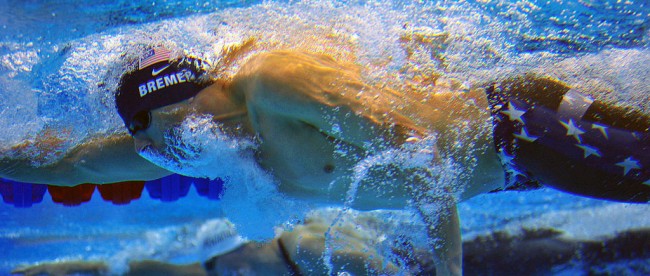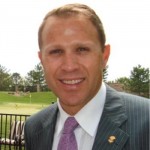When You Push Yourself Hard, How Do You Recover The Balance You Need?

By Eli Bremer, Olympic Athlete and Principal, Five Rings Training
Driven business leaders can push themselves to the brink of exhaustion and stress, just as top performing athletes do. What can I share, as an Olympic athlete, that may help a similarly driven high-level executive?
You see it in sports movies–heroes training harder than anyone else, pushing their bodies and minds to accomplish Herculean feats. But the reality of human body and mind performance is much different than Hollywood or your high school coach would have you believe. At the top of sports performance, you discover that training hard is simply not enough: everyone does it. One of the biggest differences between good and great athletes is how seriously they take recovery. True too in business.
Before we explore this idea further, let’s take a closer look at what happens during athletic training. Physical or mental stress leaves the body weak. For instance, following an athletic workout, muscles are torn and glycogen is depleted. An athlete is at his weakest point immediately following a workout. So if working out makes the body weak, why do athletes do it? Because something interesting happens in response to stress — if allowed to fully recover, bodies don’t return to their previous state, they actually grow stronger!
Stress in the body signals growth and replenishment. Torn muscles grow back stronger and depleted glycogen stores are replenished with more glycogen than before. Through the repeated process of stress and recovery, athletes train their bodies to be as strong as naturally possible.
Recovery is equally important to training and you can only train as hard as your recovery permits. For instance, if you try to train at 95% and recover at 65%, you will quickly become injured and worn out. Your body will reduce performance to no more than 65% because this is all it can handle. However, if you train at 85% and recover at 85%, you will quickly outperform your competitor who thinks he is working 10% harder than you.
Athletes recover by sleeping, eating foods that assist regeneration, using hot tubs, and getting massaged. All this may sound more like a spa than a stringent regimen for world-class athletes, but it is of crucial importance. Many immature athletes try to be the toughest in practice but don’t take their recovery seriously. However, over time, athletes who recover more conscientiously perform at sustainably higher levels than athletes who discount the importance of recovery.
This idea of recovery and balance is at least as important in business. Business (and life) is a marathon, not a sprint. Most business people who are driven and are high achievers wonder how to work even harder and become even more successful; the most successful executives learn to balance their business and the other stresses of life with “recovery” as well. Those who do find the balance achieve sustainable high productivity and personal growth.
There is no question that success in business has high demands and very long hours. In addition, emergencies such as special opportunities, problems, and important personal and family issues increase these demands. The reality is that we must respond and do what we can to take advantage of an opportunity or handle a problem; however, after such intense times, it is necessary to recover, to get back the good and proper balance in our lives.
So, the next time you find yourself wondering how to further improve your work and success, don’t simply ask yourself how much harder you can work, ask yourself if you are in balance; if you can you take enough time for yourself, to keep your battery charged, enjoy your family, friends and life; if you can you relax and feel peace and have a sense of significance in your work. And finally, make sure to ask yourself, “Am I happy?”
If you are happy, you will very likely do better work and be a better leader!
Eli Bremer
 Eli graduated from the United States Air Force Academy, where he was a two-sport athlete. Upon his graduation and commissioning as an officer, he was assigned to the Air Force’s World Class Athlete Program. He won the U.S. National Pentathlon Championship in 2003 and was training for the 2004 Olympics in Athens when an untimely broken foot ended his hopes. However, he was asked by NBC to help produce a portion of the event and became the only rookie ever hired by NBC to do commentary for the Olympics.
Eli graduated from the United States Air Force Academy, where he was a two-sport athlete. Upon his graduation and commissioning as an officer, he was assigned to the Air Force’s World Class Athlete Program. He won the U.S. National Pentathlon Championship in 2003 and was training for the 2004 Olympics in Athens when an untimely broken foot ended his hopes. However, he was asked by NBC to help produce a portion of the event and became the only rookie ever hired by NBC to do commentary for the Olympics.
Foot healed, Eli continued his training, won gold at the PanAmerican Championships, medaled at the 2008 World Cup, and competed for the U.S. on our 2008 Olympic team in Beijing.
Eli intends to compete for the U.S. in the 2012 Olympics and is training at the U.S. Olympic Training Center in Colorado Springs.
A very special person, Eli and his wife, Cami, are committed to help others and are active with ministry programs in Colorado and also their “pet charity” New Hope Uganda.
Eli co-founded Five Ring Insight, a training company that uses an interactive curriculum to help business achieve greater results by applying the principles of elite athlete performance. He also is a keynote motivational speaker.
